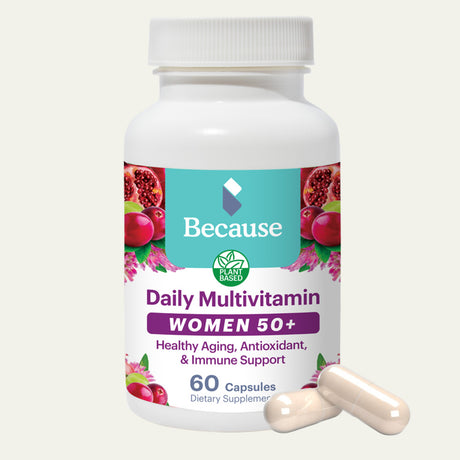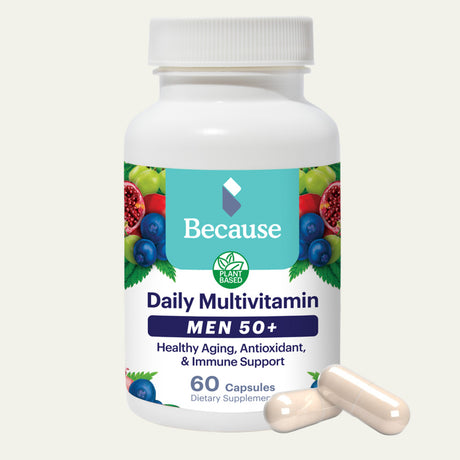As we get ready for the New Year, it’s the perfect time for setting intentions that support a vibrant and fulfilling life. For older adults, New Year resolutions can go beyond traditional goals and focus on enhancing health, well-being, and connection. These seven resolutions are tailored to empower older adults with practical ways to stay active, nourish the mind and body, and embrace new experiences that bring joy and purpose. By setting realistic, meaningful goals, older adults can enjoy a healthier, happier year ahead, taking small steps that make a big difference in overall quality of life.

1. Prioritize Physical Activity
Physical activity is one of the best ways to support health and vitality as we age. By incorporating low-impact exercises, older adults can strengthen muscles, improve flexibility, and boost energy without putting strain on joints.
Low-Impact Exercises for Joint Health
Low-impact exercises are ideal for maintaining joint health while staying active, as they provide gentle movement that minimizes stress on joints. Activities like walking, swimming, and yoga help strengthen muscles around the joints, improve balance, and enhance mobility, all while reducing the risk of injury. These exercises can be easily adjusted to individual fitness levels, making them perfect for older adults looking to stay fit and protect their joints.
For more activities that are easy on the joints, check out this blog.
Tips for Staying Consistent with Exercise
Staying consistent with exercise can be challenging, but building a routine around enjoyable activities and setting achievable goals makes it easier to stick with. Try scheduling exercise at the same time each day, starting with short sessions and gradually increasing duration as your stamina improves. Joining a group class or finding an exercise buddy can also provide motivation and accountability, helping make fitness a regular, rewarding part of your routine.
2. Focus on Balanced Nutrition
Balanced nutrition is key to feeling your best and maintaining health as you age. By focusing on essential nutrients and mindful eating, older adults can support energy levels, immune health, and overall wellness.
Key Nutrients for Aging Well
As we age, certain nutrients become especially important for maintaining health and vitality. Calcium and vitamin D are crucial for bone health, while protein supports muscle mass and strength. Fiber aids in digestion, and antioxidants, like vitamins C and E, help combat oxidative stress, all of which contribute to aging well and feeling energized.
Meal Planning Tips
Meal planning can make it easier to maintain balanced nutrition, ensuring you get the nutrients needed for healthy aging. Start by creating a weekly plan that includes a variety of fruits, vegetables, lean proteins, and whole grains, and prep ingredients in advance for quick, nutritious meals. Incorporating simple, nutrient-rich snacks—like yogurt with berries or nuts—can also help keep energy levels steady throughout the day.
For more detailed information on essential nutrition for older adults, read more here.
3. Prioritize Mental Wellness
Mental wellness is essential to overall health, especially as we age. By prioritizing activities that stimulate the mind and reduce stress, older adults can support cognitive function and emotional well-being.
Engage in Brain-Boosting Activities
Engaging in brain-boosting activities helps keep the mind sharp and can improve memory, focus, and problem-solving skills. Activities like reading, solving puzzles, learning a new language, or picking up a musical instrument stimulate different areas of the brain, supporting cognitive health. Making these activities a regular part of your routine can enhance mental agility and provide a sense of accomplishment and enjoyment.
Mindfulness and Stress Management Techniques
Mindfulness and stress management techniques, such as meditation, deep breathing exercises, and gentle yoga, can help older adults manage stress and improve overall mental wellness. Practicing mindfulness encourages relaxation, reduces anxiety, and enhances emotional resilience by bringing awareness to the present moment. Simple daily practices, even just five minutes a day, can make a significant difference in promoting calm and reducing stress-related health issues.

4. Strengthen Social Connections
Approximately 1 in 4 older adults is experiencing social isolation. Staying socially connected is vital for mental and emotional well-being, especially as we age. Social isolation and loneliness increase the risk of a person developing a number of conditions including: heart disease, stroke, diabetes, dementia, and mental health disorders. Building and maintaining relationships can improve mood, reduce feelings of isolation, and even boost overall health.
Ways to Stay Connected
There are many ways to stay connected, from joining local clubs or community groups to participating in volunteer opportunities that bring people together. Regularly connecting with family and friends through phone calls, social media, or in-person gatherings also helps foster strong relationships. By actively engaging with others, older adults can build a supportive social network that enhances happiness and well-being.
Embracing Technology for Socialization
Embracing technology can open up new avenues for socialization, allowing older adults to stay in touch with loved ones regardless of distance. Video calls, social media, and messaging apps make it easy to connect with family and friends, join virtual events, or participate in online communities. Learning to use these tools can help older adults maintain an active social life, stay informed, and feel connected to the world around them.
5. Schedule Regular Health Screenings
Regular health screenings are a key component of preventative care, helping older adults detect and manage health issues before they become serious. Staying on top of these screenings supports long-term wellness and peace of mind.
Importance of Preventative Care
Preventative care is essential for maintaining health and catching potential issues early, reducing the risk of serious illness and costly treatments. Regular screenings, vaccinations, and lifestyle guidance allow healthcare providers to address small concerns before they become major health problems. For older adults, preventative care can support longevity, enhance quality of life, and help maintain independence.
Staying Organized with Health Appointments
Staying organized with health appointments can help ensure that no critical screenings or checkups are missed. Using a calendar, either digital or paper, to track upcoming appointments, medication schedules, and follow-ups is an effective way to stay on top of healthcare needs. Setting reminders and keeping a health journal with notes from each appointment can also make it easier to manage multiple health requirements and communicate effectively with healthcare providers.
6. Prioritize Better Sleep
Quality sleep is crucial for physical and mental health, especially as we age. Sleep deficiency has been linked to accelerated aging, heart issues, and cancer. By prioritizing restful sleep, older adults can improve mood, boost energy levels, and support overall wellness.
Tips for Quality Rest in Later Life
Achieving quality rest in later life can be supported in a variety of ways, try these tips to get a good night’s sleep:
- Create a calming bedtime routine, like reading or gentle stretching, to signal bedtime
- Maintain a consistent sleep schedule each night
- Avoid caffeine and heavy meals in the evening
- Ensure a comfortable sleep environment with a supportive mattress and bedding
- Reduce screen time at least an hour before bed
- Keep the room cool and dark to promote restful sleep
Managing Sleep Issues
Managing sleep issues in later life often involves identifying underlying causes, such as stress, medical conditions, or lifestyle habits that may disrupt sleep. Practicing relaxation techniques like deep breathing or progressive muscle relaxation before bed can help ease tension, while limiting naps during the day can improve nighttime sleep quality. If sleep problems persist, consulting a healthcare provider can be beneficial, as they may recommend treatments or therapies to address issues like insomnia or sleep apnea.

7. Engage in a New Hobby or Skill
Engaging in a new hobby or skill is a rewarding way to stay mentally active, inspired, and fulfilled in later life. Exploring fresh interests can enhance cognitive health, spark joy, and bring a sense of purpose to daily routines.
Exploring Interests and Finding New Joys
Exploring new interests allows older adults to discover passions and activities that bring joy and meaning to their lives. Whether it’s gardening, painting, learning a musical instrument, or joining a book club, trying something new can add excitement to each day and foster a sense of accomplishment. Finding hobbies that resonate not only enhances mental and emotional well-being but also opens doors to new friendships and community connections.
Health Benefits of Staying Curious and Active
Staying curious and active offers numerous health benefits for older adults, including improved cognitive function, reduced stress, and enhanced emotional resilience. Engaging in mentally stimulating activities helps keep the brain sharp, lowers the risk of memory loss, and supports mental clarity. Physical hobbies, like gardening or dancing, also promote mobility, balance, and cardiovascular health, making curiosity and activity essential for a vibrant and healthy life.
Setting New Year resolutions that focus on health, wellness, and connection can empower older adults to live each day with greater vitality and fulfillment. By prioritizing physical activity, balanced nutrition, mental well-being, social connections, preventive care, quality sleep, and new hobbies, individuals can take meaningful steps to support both body and mind. Small, achievable goals pave the way for positive change, and embracing these resolutions can lead to a year filled with improved health, joy, and resilience. With these resolutions, older adults can make this year their best yet, embracing growth and wellness at every stage.
Sources:
Mayo Clinic. (2023, Sept. 21). Arthritis and exercise: Keep your joints healthy. https://www.mayoclinic.org/diseases-conditions/arthritis/in-depth/arthritis/art-20047971#:~:text=Low%2Dimpact%20exercises%20help%20keep,and%20lessen%20pain%20before%20exercise
Miami Jewish Health. (2023, Mar. 13). The most important nutrients for aging adults. https://www.miamijewishhealth.org/blog/health-assessment/the-most-important-nutrients-for-aging-adults/#:~:text=Dietary%20Fiber,enough%20fiber%20in%20their%20diet
Harvard Health Publishing. (2022, May 13). 12 ways to keep your brain young. Harvard Medical School. https://www.health.harvard.edu/mind-and-mood/12-ways-to-keep-your-brain-young#:~:text=Exercise%20also%20spurs%20the%20development%20of%20new,translates%20into%20better%20performance%20in%20aging%20animals
World Health Organization. (n.d.). Social isolation and loneliness. https://www.who.int/teams/social-determinants-of-health/demographic-change-and-healthy-ageing/social-isolation-and-loneliness
Centers for Disease Control and Prevention. (2024, Mar. 26). Health impacts of social isolation and loneliness. https://www.cdc.gov/social-connectedness/risk-factors/index.html#:~:text=Health%20impacts,Earlier%20death
Hernandez, N. (2024, Sept. 17). Aging and sleep: How sleep changes as we get older. National Council on Aging.https://www.ncoa.org/adviser/sleep/aging-and-sleep/














